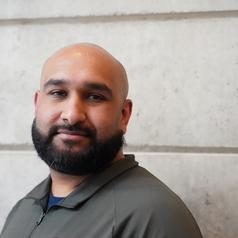
T Sidhu
Tandeep Sidhu is a PhD Candidate in the Sociology and Legal Studies department at the University of Waterloo. His research interest broadly examines the intersections between race and policing. Tandeep's dissertation research examines the qualitative experiences of individuals who have come in contact with police tactical units and other militarized policing elements. Tandeep's research is supported by the Social Sciences and Humanities Research Council.
Less ![]()

T. Michael Anderson
Professor of Biology, Wake Forest University
My research focuses on the ecology and conservation of grassland and savannas ecosystems. In particular, I am interested in understanding the unique co-evolution that has occurred between plants and large herbivores in African savannas and the consequences of these interactions for ecosystem processes across large scales. The majority of my research is conducted in the Serengeti Ecosystem of East Africa, one of the last remaining fully functional grazing ecosystems, home to earth’s largest free-ranging ungulate herds and one of the best-studied ecosystems in the paleotropics.
Recent and current projects include: (1) how landscape features, plant forage quality, and risk of predation interact to determine the spatial distribution and movements of large savanna herbivores; (2) the ecology and evolution of trees in the "acacia" clade; (3) plant and herbivore effects on nutrient cycling; (4) dynamics and stability of tree-grass coexistence in savannas across continents.
Less ![]()
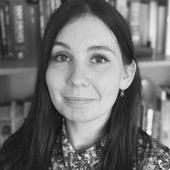
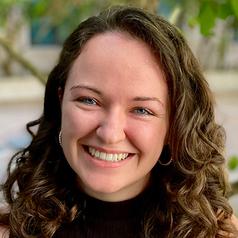
Tacey Hicks
PhD Candidate in Oceanography, Texas A&M University
I am an oceanographer, book lover, and avid adventurer excited to inspire ocean literacy, conservation, and community through scientific storytelling.
Educational Background:
Ph.D. Oceanography, Texas A&M University, 2017 – current
B.S. Chemistry (ACS Certified), Montana State University, 2016
Research Interests:
Climate Change Impacts on Calcifying Ecosystems
Ocean Carbon Cycling
Ocean Acidification
Deep-Sea and Tropical Coral Reefs
Oyster Reefs
Less ![]()
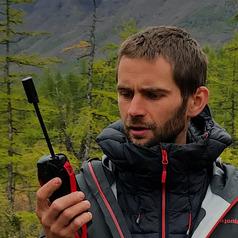
Tadas Nikonovas
Research Officer, Geography Department, Swansea University
Researcher at the Centre for Wildfire Research, department of Geography, Swansea University.
Tadas studied geography and his PhD focused on satellite-based estimation of atmospheric emissions from large wildfires in boreal regions. Following completion of the PhD Tadas research interests were satellite observations of global fire activity, wildfire emissions modelling and prediction of fire occurrence.
Less ![]()
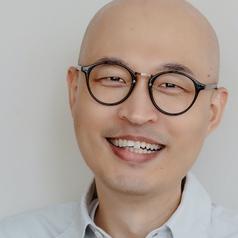
Tae Yeon Eom
Sessional Lecturer & PhD Candidate, East Asian Culture, University of British Columbia
I am a researcher, lecturer, and writer specializing in the intersection of cultural, historical, and political dynamics in East Asia. My work has previously centred on the intersections of culture, technology, and globalization, and I have been featured in several academic and mainstream publications for my insights into these areas.
Less ![]()
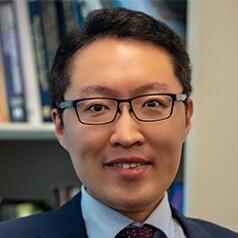
Taehyun Roh
Assistant Professor of Epidemiology, Texas A&M University
Taehyun Roh, Ph.D. is an Assistant Professor in the Department of Epidemiology and Biostatistics at Texas A&M University. He has a broad background in environmental health, with specific training and expertise in toxicology and epidemiology. He conducts environmental epidemiology research on the chronic health effects of drinking water contaminants and other environmental health issues including indoor air quality.
Less ![]()
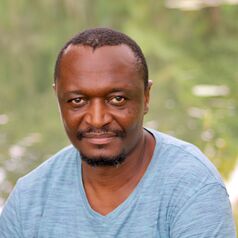
Tafadzwanashe Mabhaudhi
Professor of Climate Change, Food Systems and Health in the Centre on Climate Change and Planetary Health at the London School of Hygiene and Tropical Medicine, London School of Hygiene & Tropical Medicine
Prof Tafadzwanashe Mabhaudhi is a globally recognised researcher, boundary
spanner, and science advocate, working on complex water, energy, food and
environmental systems at the interface of science, policy, and society. He has a
track record of scientific leadership, capacity building and building partnerships
needed to achieve outcomes and impacts from research, development and
innovation. His goal is to work on research and development that informs policy,
equality and transformation in Africa (and beyond). He is a professor of climate
change, food systems and health in the Centre on Climate Change and Planetary
Health at the London School of Hygiene and Tropical Medicine and director of the
Institute for Natural Resources (NPC) in South Africa, and an honorary professor at
the University of KwaZulu-Natal in South Africa and the University of Nottingham (Malaysia).
Less ![]()
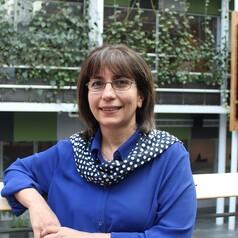
Taghreed Hikmet
Senior Lecturer, International Business, Strategy and Entrepreneurship Department, Auckland University of Technology
Taghreed, a dedicated professional with a rich background spanning over two decades in the business world, coupled with a decade's worth of academic achievements, including a Ph.D. and an MBA in Operations Management and MBus, has leveraged her knowledge from both sides to establish valuable connections between these two realms. Understanding one another is the key to unlocking the maximum scientific and theoretical benefits from academia and implementing them in the real business world, and this has become her mission.
Her hands-on experience on both sides has positioned her optimally to forge these links, ensuring that complex ideas and research findings are not confined to scholarly circles but are presented in an accessible, engaging, and informative manner for a broader and more engaged audience.
Less ![]()
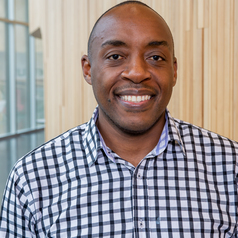
Tago Mharapara
Senior Lecturer, Department of Management, Auckland University of Technology
Dr Tago Mharapara is an applied Industrial, Work and Organisational Psychology researcher. Tago is the Principal Investigator of an interdisciplinary team investigating how community midwives and their whānau manage the demanding nature of community-based midwifery work. In 2021, Tago’s team was awarded a multi-year grant ($1,364,660) by the Health Research Council of New Zealand to collaborate with Ngā Maia Māori Midwives Aotearoa, Pasifika Midwives Aotearoa, and the New Zealand College of Midwives.
Less ![]()
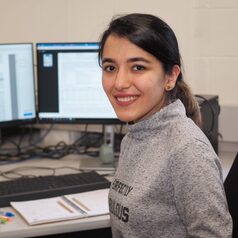
Tahereh Alinejadtabrizi
PhD student, Monash University
I am a PhD student in atmospheric science at Monash university.
I am part of Australian Research Council Centre of Securing Antarctica's Environmental Future (SAEF) and Centre of Excellence for Climate Extremes (CLEX).
I am working on the boundary layer clouds, their characteristics and precipitation from them to address the observed biases in precipitation and radiation in climate simulations.
Less ![]()
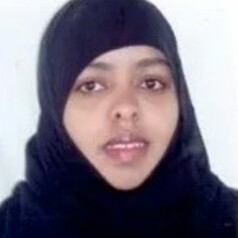
Tahira Shariff Mohamed
PhD candidate, Institute of Development Studies
Tahira Shariff is from Northern Kenya. She is an anthropologist and holds a Master’s Degree in International Studies from the University of Nairobi. Her MA project was on human smuggling across the Kenya-Ethiopia Border. Tahira is very interested and enthusiastic about research-based work, driven by a personal interest in working with communities, coupled with her academic foundations in anthropology.
As a pastoralist woman, Tahira has noted the lack of minority representation in academia and this deficit has motivated her to seek a doctoral degree under the PASTRES Project, both to increase her own knowledge and experience, but also to provide her with skills and experience to mentor and engage the next generation of female Kenyan scholars.
Recently, Tahira has worked with the Effective State and Inclusive Development (ESID) Research Centre at the University of Manchester on a project examining governance and the politics of implementing social protection in Kenya through the case for Marsabit County in Northern Kenya. For her PhD, Tahira aims to examine how pastoralist communities evolve community safety nets and coping strategies in response to external shocks, and how such strategies are rooted in cultural institutions.
Less ![]()

Tahlia Johnson
Tahlia Johnson is a proud Warramunga midwife with clinical experience from Kaurna Country, passionate about Indigenous women’s health, particularly birth and postpartum. Tahlia works as an academic teacher and cultural navigator at Flinders University, educating health students around incorporating culture in practice. She works as a researcher focusing on Indigenous curriculum, women’s and family health, as well as researching colonisation in health systems and services. She specialises in implementing qualitative Indigenous research methods across research teams. Tahlia’s goal is to find the evidence we need to make positive changes to the health services we provide Indigenous families in mainstream health.
Less ![]()
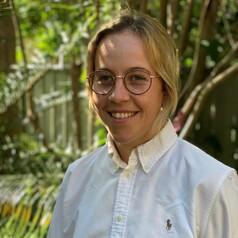
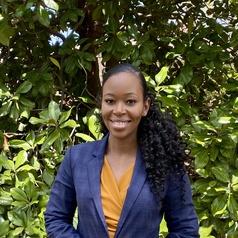
Taifha Natalee Alexander
Taifha Natalee Alexander currently serves as the CRT Forward Project Director at UCLA School of Law Critical Race Studies Program where she leads the law school's response to the attacks on Critical Race Theory, alongside a team of faculty, staff, and student researchers. Taifha graduated, with honors, from both Georgetown Law and UCLA School of Law. Taifha has over twelve years of experience in higher education. Her legal studies and research are focused at the intersection of law, critical race studies, higher education, social justice, and equity. While a law student at Georgetown, Taifha’s article, We Cant Breathe: How Top Law Schools Can Resuscitate an Inclusive Climate, was published in the Georgetown Journal of Modern Critical Race Perspectives. Since earning her J.D., Taifha has served in roles at University of South Carolina Aiken, UCLA, and Wofford College, to manifest the recommendations she put forth in her article. Her most recent article, Chopped & Screwed: Hip-Hop from Cultural Expression to a Means for Criminal Enforcement, was published in the Harvard Journal for Sports and Entertainment Law. Taifha’s commitment to equity, justice, and anti-racism was fostered at St. John’s University in Queens, NY, where she earned her Bachelor of Science in Legal Studies.
Less ![]()
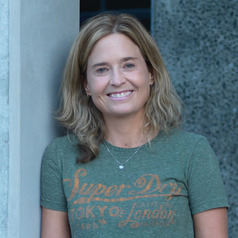
Taisia Huckle
Associate Professor in alcohol policy, Massey University
Public health researcher with track record in quantitative alcohol policy research. Key interests in alcohol policy, alcohol-related harm, drinking patterns and alcohol's harm to others.
Less ![]()
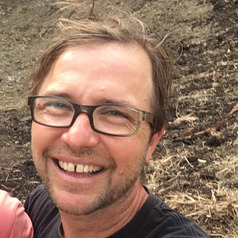
Tait Sanders
Researcher, University of Southern Queensland
Tait is a researcher at the University of Southern Queensland whose interest focuses on gender detransition and the processes and practices through which trans* becomes uncomfortably recognizable. As a transqueer thinker, Tait’s research engages critical trans studies and trans feminist theory within the areas of trans incarceration and detransition narratives. As an accredited counsellor, Tait works with adults and young people around gender and sexuality, and bereavement due to suicide.
Less ![]()
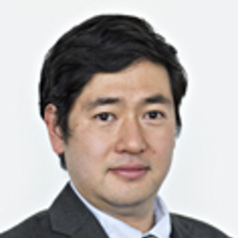
Taku Tamaki
Lecturer in International Relations, Loughborough University
Taku Tamaki is a Lecturer in International Relations, specialising in the international political dynamics of the Asia-Pacific region. After gaining his PhD at Aberystwyth, he was Research Fellow at the Institute of Asian Cultural Studies at International Christian University in Tokyo, and taught International Relations at Plymouth before moving to Loughborough in 2007. He has taught a wide range of courses on international politics and international political economy, including International Relations Theory, the United Nations and International Organisations, The Asia-Pacific in Global Politics, and the International Political Economy of the Asia-Pacific Region.
Having spent four years as a US Treasuries broker at Cantor Fitzgerald (Tokyo office), he brings first-hand experience of political economy to the classroom, having experienced the market turmoil immediately following the announcement of the collapse of Barings Bank in 1995.
Taku is interested in applying the concepts of International Relations and Social Theory to the international political-economic dynamics of the Asia-Pacific region. His main focus is on Japanese foreign policy in East Asia, spanning both Tokyo’s diplomatic- and economic relations with Asia and the US.
His current research investigates the images of Asia in contemporary Japanese foreign- and economic policy pronouncements. Here, he explores how policy elites understand and explain Asia as both a threat and opportunity—an interpretation that transcends both the past and present. He is also looking into Japan’s soft power projection in Western Europe, researching on the way Japanese government perceives its political- and economic activities in the EU and the UK.
He has published in leading journals in international relations and the international politics of the Asia-Pacific, including The Pacific Review, International Relations, and the International Relations of the Asia-Pacific.
Less ![]()
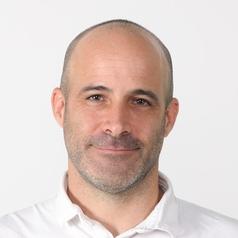
Tal Mimran
Associate Professor of International Law, Zefat Academic College
Dr. Tal Mimran is an associate professor at the Zefat Academic College, the Academic Coordinator of the International Law Forum of the Hebrew University, and the head of a research program on digital human rights at Tachlith Institute. He is also a fellow at the Federmann Cyber Security Research Center in the Law Faculty of the Hebrew University, a member of several NATO CCDCOE working groups, and an advisor to international tech companies on matters of international law and law & technology.
Less ![]()
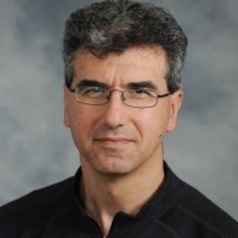
Talan B. Iscan
Professor of Economics, Dalhousie University
He has held visiting positions at Harvard, IMF, Universidad Carlos III, and Cornell. I also taught courses and gave lectures in South America, the Caribbean, and the Baltic countries. I was one of the founding members of the Canadian Development Economics Study Group. I have published extensively in peer reviewed journals and main research has been on macroeconomics, international economics, and agricultural economics. I have also been an advocate for safe cycling and naturalized urban landscapes.
Less ![]()

Talara Lee
PhD Candidate, University of Sydney
Talara Lee is a PhD candidate at the University of Sydney, interested in gender, employment relations and the future of work. Her current research projects focus on gendered careers in the professions, and the intersection of employment relations policy with women's working lives. Talara holds a Master of Social Policy from the University of Melbourne and brings to her research over ten years' industry experience in employment relations and public policy across all levels of government and in the private sector.
Less ![]()
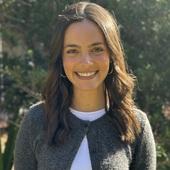
Taliah Jade Prince
Postdoctoral Research Fellow in Youth Mental Health and Neuroimaging, University of the Sunshine Coast
Less ![]()

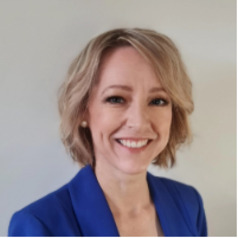
Talitha Best
Professor of Psychology, CQUniversity Australia
Talitha is a clinical psychologist, researcher, educator, supervisor and founding head of the NeuroHealth Lab within Appleton Institute.
Talitha’s research, clinical practice, teaching and supervision focus on the impact of diet and therapeutic approaches for promoting brain function and improved psychological and mental health outcomes. Broadly, Talitha uses applied research methods and clinical practice to understand the complex ways in which nutrition and our food systems influence brain function, well-being, behaviour, cognitive performance and mental health.
She has expertise in developing and implementing interdisciplinary applied research that contributes to outcomes and knowledge across the areas of clinical psychology, behavioural neuroscience, nutritional psychiatry, compassion science, food systems and agricultural development aimed at improving lives through better brain and mind health.
Less ![]()

Tallal Abdalbasit Saeed
Assistant Professor of Architecture, University of Khartoum
Dr. Tallal Saeed received his Bachelor degree in Architecture in 2000 from the University of Khartoum, and his Doctorate in 2007 from the Illinois Institute of Architecture. Since then, Dr. Saeed had assumed leading professional and academic positions, such as the Secretary General of the Sudanese Institute of Architects (2012-2018), the Deputy-Dean of the Faculty of Architecture (2014-2017), the Head of the Department of Architectural Design (2014-2021), and the Coordinator of the MSc in Architecture Program (2013 - 2021).
Dr. Saeed possesses a wide local and international experience. He had collaborated with (SHG) as a sustainability specialist, in numerous projects in the US, UAE and China, and was a project architect with Chicago’s Architectural Services Group (ASG) for three years. Dr. Tallal, also, collaborated with the Qatari’s Gulf Organization for Research and Development (GORD) as a sustainability specialist.
Dr. Tallal manages Sudarch, an architectural consultancy firm, with branches in Khartoum 2010 and Juba 2011. Since 2010, Sudarch studio has been working in numerous residential and institutional projects in both Sudan and South Sudan.
Dr. Saeed engages in teaching several design studios, and teaches several classes on architectural science, building construction, as well as the contemporary architectural theory.
Less ![]()

Tallulah Waterson
PhD Student, Centre for Astrophysics and Supercomputing, Swinburne University of Technology
I am a PhD student at Swinburne's Centre for Astrophysics and Supercomputing, studying space domain awareness and resident space objects.
Less ![]()
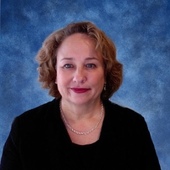
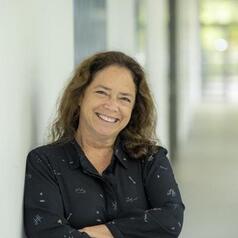
Tamar Pincus
Professor in Health Psychology and Dean, University of Southampton
A member of the University Executive Board, Tamar has executive management responsibility for the Faculty and leads on the delivery of the strategic priorities. Her research focuses on investigating psychological aspects of pain, and especially chronic pain.
Prof Pincus' research focuses on investigating psychological aspects of pain, and especially chronic pain. This has included investigations of cognitive biases in pain patients, the psychological predictors for poor outcome in low back pain, and the study of clinicians’ beliefs and behaviours and their effect on patients with pain, especially in reference to effective reassurance and return to work. Throughout she has collaborated closely with researchers from many disciplines, including doctors, physiotherapists, osteopaths, chiropractors and clinical psychologists, from a multitude of institutions, in the UK and internationally. Her current research is focused on delivering effective reassurance to patients in primary care, and studying the use of technology to deliver rehabilitation.
Less ![]()
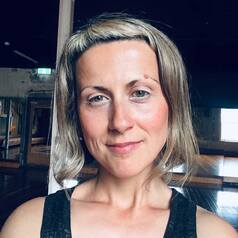
Tamara Borovica
Research assistant and early career researcher, Critical Mental Health research group, RMIT University
I am an early-career researcher at the School of Global, Urban and Social Studies at RMIT. My research is situated within RMIT's Social and Global Studies Centre, as part of Critical Mental Health research group. My research focuses on embodiment, identity and psycho-social approaches to mental health and well-being. My expertise is in embodied and arts-based methods for participatory research inclusive of non-normative ways of knowing. Currently I works across a number of research projects exploring experiences of emotional and mental health distress among various populations with a focus on enhancing the public dialogue about, and the development of, ‘human-centric’ approaches to mental and emotional health and wellbeing.
PhD (Philosophy) - The University of Melbourne
M.A. (Education) - The University of Novi Sad (Serbia)
B.A. (Education) - The University of Novi Sad (Serbia)
Less ![]()

Tamara Daly
Professor of Health Policy and Equity, York University, Canada
Dr. Tamara Daly is a political economist and health services researcher, a Professor at York University int he School of Health Policy and Management, the Director of the York University Centre for Aging Research and Education, and the Director of the SSHRC Partnership for Age-Friendly Communities within Communities. Her scholarship highlights health care access and outcomes; public accountability; working, living and visiting conditions in long term residential care; and promising practices, principles and policies to improve access and health equity for older adults and for those who provide their care. She has authored over 100 academic and plain language publications, is the recipient of teaching and research awards, and actively supervises graduate students in research and publication.
Less ![]()
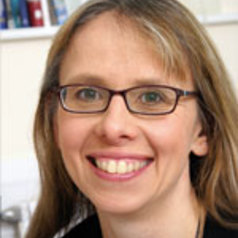
Tamara Hervey
I studied at Glasgow and Sheffield, and held academic posts at Durham, Manchester and Nottingham Law Schools, before joining Sheffield in 2007.
My main research interests are in the field of European Union social and constitutional law, in particular its application in health fields, social security and welfare, and non-discrimination. I have published on the European Union's competence in social fields, especially health law; on the regulation of tobacco in the EU context; on European public health law and policy; on the governance of stem cell research in the EU; on EU non-discrimination law and minority rights; and on the 'right to health' in European contexts. I am interested in socio-legal theory and method, in particular as applied to the law of the European Union.
I am currently working on two projects. One is an interdisciplinary project on the European Union's governance of health. This includes public health policies, such as anti-tobacco policy; the regulation of research, particularly in respect of new technologies; the design of healthcare systems; and the implications of the 'single European market' for healthcare. It also includes work on human rights. I am collaborating with scholars and policy-makers in the UK, on continental Europe and in the USA, from disciplines including law, health policy, sociology and political science. I am also beginning a project on global and comparative health law.
The other project is about equality and diversity in legal education and the legal profession.
Less ![]()
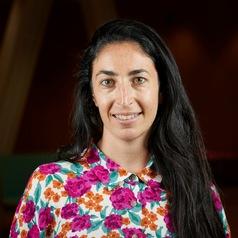
Tamara Iungman
PhD researcher, Barcelona Institute for Global Health (ISGlobal)
I am a Biologist with a Master in Public Health and Health Management and another in Environmental and Occupational Health.
I am very curious and that has led me to explore different disciplines. Throughout my academic and professional training, I have developed strong data analysis skills including multiple statistical, epidemiological and spatial analysis tools, as well as the development of an integrative and multidisciplinary approach in everything I do, which enriches any type of project.
I am currently doing my PhD at the Barcelona Institue for Global Health. The overall aim of the thesis is to expand the evidence on the association between urban green areas, the urban heat islands, the urban design and health.
Passionate about evidenced-based policies and building more resilient, sustainable, healthy and fair systems through innovative solutions.
Less ![]()

Tamara Terzian
Assistant Professor of Dermatology, University of Colorado Anschutz Medical Campus
My laboratory is dedicated to studying the regulation of the transcription factor p53. Mutations in p53 are found in more than 50% of human cancers, making this tumor suppressor the subject of extensive basic and preclinical research. Our studies focus on 3 main topics:
1- p53 in tumorigenesis: Through the utilization of mouse models of cancer, we to unravel the role of p53 mutations in driving tumorigenesis. By understanding the underlying mechanisms that initiate and promote skin cancers like squamous cell carcinomas and melanoma, we strive to enhance cancer therapies.
2- p53 and development: Our investigation involves studying mouse models that express elevated levels of p53, which exhibit developmental abnormalities, particularly lymphatic defects. By characterizing these mice phenotypically and molecularly, we aim to identify crucial factors contributing to the pathogenesis of associated diseases. Furthermore, we are exploring the potential of certain drugs in treating the debilitating disorder of lymphedema.
3- p53 and pigmentation: Our research focuses on the activation of the p53 pathway in skin stem cells with the goal of developing treatments for pigmentary disorders such as vitiligo and giant congenital nevi. We have identified a drug that targets the p53 pathway and shows promise in promoting melanocyte proliferation and repigmentation of depigmented vitiligo skin. We are currently analyzing the mode of action of this drug in preparation for future clinical trials.
These research areas represent our ongoing efforts to deepen our understanding of the working of p53 and contribute to the advancement of cancer and lymphatic disease therapy.
Less ![]()


Tamara Antona Jimeno
Lecturer at Journalism and Global Communication, Universidad Complutense de Madrid
Tamara Antona Jimeno holds a PhD in audiovisual communication, advertising and PR from the UCM. She is currently PAD in the Department of Journalism and Global Communication at UCM. She started as a trainee lecturer in the Department of History of Social Communication at UCM (until 2016). She has taught in the Bachelor Degree in Communication (Communication Theory I and II) and in the International Diploma in Research Culture, at UNIR. She has a six-year research period and has participated in competitive research projects related to the history of television and social networks and discourses of hate.
Less ![]()
- Market Data





















